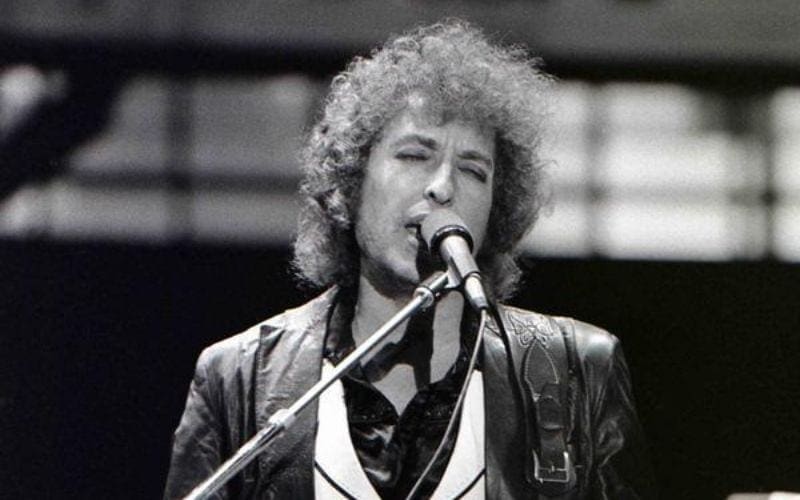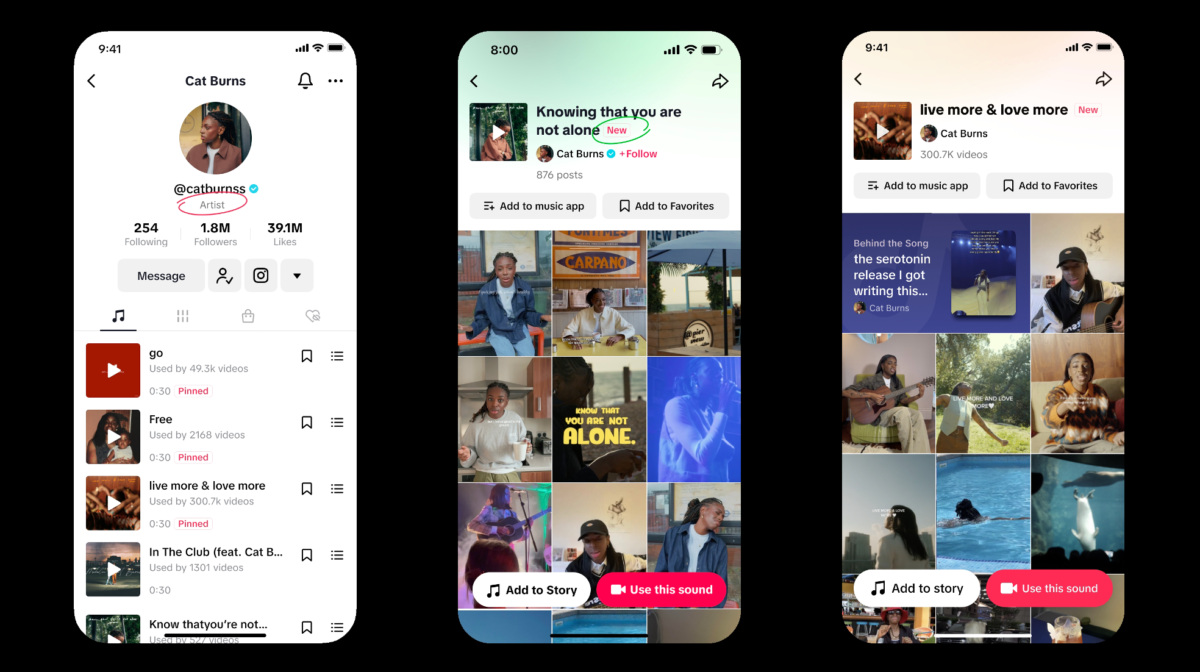It seems that whenever an icon of popular music is discussed it is not long before someone raises accusations of ‘selling out’. But what exactly is meant by the term ‘selling out’?

What Is A ‘Sell-Out’?
Urban Dictionary defines a sell-out as ‘anyone who sacrifices artistic integrity in an effort to become more successful or popular (generally in music); someone who forgets their roots.’ This is not wide of the mark, as far as I’m concerned. There is an implication of betrayal in the term. A classic example is a time Bob Dylan was heckled by folk purists denouncing him as a ‘Judas’ because he swapped his acoustic guitar for an electric one. I have always felt that the term is over-used. It is too readily employed by critics who lack the ingenuity to achieve artistic success themselves.
Examples Of A Sell-Out Musician
When Mike Dirnt of Green Day was accused of selling out he hit back with this eloquent response: “If there’s a formula to selling out, I think every band in the world would be doing it. The fact that you write good songs and you sell too many of them if everybody in the world knew how to do that they’d do it. It’s not something we chose to do.
The fact was we got to a point that we were so big that tons of people were showing up at punk-rock clubs, and some clubs were even getting shut down because too many were showing up. We had to make a decision: either break up or remove ourselves from that element. And I’ll be damned if I was going to flip burgers. I do what I do best. Selling out is compromising your musical intention and I don’t even know how to do that.”
Just like Bob Dylan going electric, Green Day were accused of abandoning their underground following to appeal to a mainstream audience. But I would argue that a change in musical direction is not a basis for dismissing a musician sell-out. It is an artist’s prerogative to experiment and reach new audiences and if they choose to adopt a more ‘commercial sound’ that is up to them.
Financial Motivation?

What makes me uneasy is when talented musicians are driven by financial motives more than the desire to produce high-quality work. In fact, this can be applied to non-artistic professions also. Whenever someone allows monetary reward to replace work ethic as the sole or primary driving force in their career I can’t help but lose respect for them.
However, I’m inclined to be harsher in my criticism of musicians who pursue wealth and fame to the detriment of artistic innovation. When musicians make money their prime motivator they run the risk of turning themselves into a brand. See the Rolling Stones, for example, who have created a merchandising empire by slapping their logo onto everything from whisky tumblers to ice cube trays. Bill Wyman even opened a Stones-themed restaurant called the Sticky Fingers Café. Nowadays I see Mick Jagger more as an entrepreneur than an artist. In fact, I’d go so far as to say the Stones have been sitting on their laurels since 1978’s Some Girls. Every record they’ve put out since then has been comparatively devoid of ambition, indicating that the ‘Greatest Rock and Roll Band in the World’ has become preoccupied with the trappings of fame and fortune.
The Other End Of The Scale
On the other end of the spectrum you have artists like Nirvana’s Kurt Cobain, who was never comfortable with superstardom. I have heard that Cobain never set out to find fame beyond the underground grunge scene of Seattle and that even when he became a multi-millionaire through unexpected global success he preferred to live in cheap motels.
Tragically the pressures of unsought-for success eventually drove this tormented artist to suicide. And of course there is Syd Barrett, founder of Pink Floyd, who hated appearing on Top of the Pops and was profoundly disturbed by exposure to fame.
Corporate World
What grates with me more than anything is when musicians ally themselves with salesmen. Is there a more sure-fire way to kill the magic of a good song than to feature it ad nauseam in banal marketing campaigns? I think not.
Call me an idealist if you like but I strongly believe that good art should have as little contact with the corporate world as possible. I find it excruciating to see musicians I admire whoring out their work to the marketing departments of faceless profit-hungry multinationals. To me this is the epitome of selling out. When I heard ‘Blowin in the Wind’ used in a Morrisons commercial, I felt something die inside me. It depressed me to see such a beautifully profound piece of lyricism hijacked by a retailer, stripped of its gravitas and infused with corporate propaganda.
Tom Waits is one musician who I admire not just for his artistic creativity but also for his refusal to succumb to the overtures of the advertising industry. As he puts it, ‘the thing with tunes is that once you’ve heard them over time and they’ve developed a lot of meaning in your personal life and there’s things that have happened and that song has been the soundtrack for in some way you don’t want to see it used for selling underwear or diapers.’ I couldn’t agree more.
Sponsorship
A good tune takes on a life of its own, independent of its composer. It has the unique ability to communicate emotions specific to each individual listener’s personal situation; it can mean different things to different people; and it carries all kinds of intimate associations for those who hear it at different moments in their life. But when such a tune is used to sell a product it becomes indelibly associated with that product; it is burdened with a message it was not created for.
I realise that this is a contentious issue. Many would say that it is fantasy to think that musicians (especially newcomers to the music scene) can forge a career from their art without corporate sponsorship. Perhaps there is truth in this and I can accept that fledgling musicians may have to license their tunes to marketing agencies in order to garner publicity for their work. After all, music is nothing without an audience. But I can never understand why established artists with a solid fan base need to sell out to the advertising industry. They demean themselves and their work by reducing beloved pieces of music to mere advertising jingles.

Celebrity Culture
I also find it depressing to see artists living off their celebrity status instead of their art and thereby becoming the puppets of admen. Did you notice the cruel (intentional?) irony when punk rock pioneer Iggy Pop showed up on TV with a puppet version of himself to promote Swiftcover car insurance? And didn’t you cringe to see John Lydon, one-time bane of the Establishment, deliver that hearty endorsement of Country Life butter?
What drove these two cultural iconoclasts to become spokesmen for the corporate machine? Was it a case of financial greed trumping artistic integrity? Did they lose all self-respect? Or had they reached the point where the royalties from their music could no longer support the lifestyle they had become accustomed to, forcing them to take degrading work simply to maintain their standard of living? Whatever the case it was sad to see them compromise their punk rock credibility in such a spectacular fashion.
Art Vs Entertainment
There is one final point I would like to make. When I talk about an artist selling out, I assume a distinction between art and entertainment. As the composer Dave Curington puts it “Art is intended to be permanent: an autonomous object for self-reflection and forever open to criticism. (This), for me anyway, marks the difference between art and entertainment, the latter being a quick summoner of emotions based on a relationship between the surface of the music and one’s personal experiences. Entertainment music has less to say (being built for a quick fire message) and so is understood very quickly… Perhaps this is the principal reason why entertainment music usually has a higher commercial value than art music. Inevitably, more people will understand something simpler than something more complex.”
I guess there is nothing inherently wrong with people using their talent and creativity to get rich, but it is inevitable that when a musician aims to turn their music into a mass-market commodity, they will sacrifice artistic freedom. They will instead be show-businessmen tapping into popular demand to sell records. The true artists practice art to express something which is inexpressible via the normal modes of human communication; their loyalty is to their impulse for self-expression even if their work speaks only to a minority.
As one final example of a band who seem to have remained consistent in their commitment to musical experimentation even in the face of global recognition I would point to Radiohead. When they released the album In Rainbows, Radiohead famously allowed their fans to download it on a pay-what-you-want basis. Sure, Radiohead can afford to dish out material for free, but that is missing the point. Radiohead have remained true to the spirit of their music, not getting carried away with excessive merchandising and commercial licensing. They even refused to allow their record label Parlaphone to release a greatest hits compilation because they believe each of their albums should be experienced as a homogenous work rather than a collection of unrelated tracks.
Final Thoughts
What do you readers have to say on this matter? I would love to know your thoughts. After all, I’m an outsider of the music industry and it’s easy for me to pass judgement from my armchair. Does anybody have any thoughts/insights/observations about what it means to be a sell-out?









